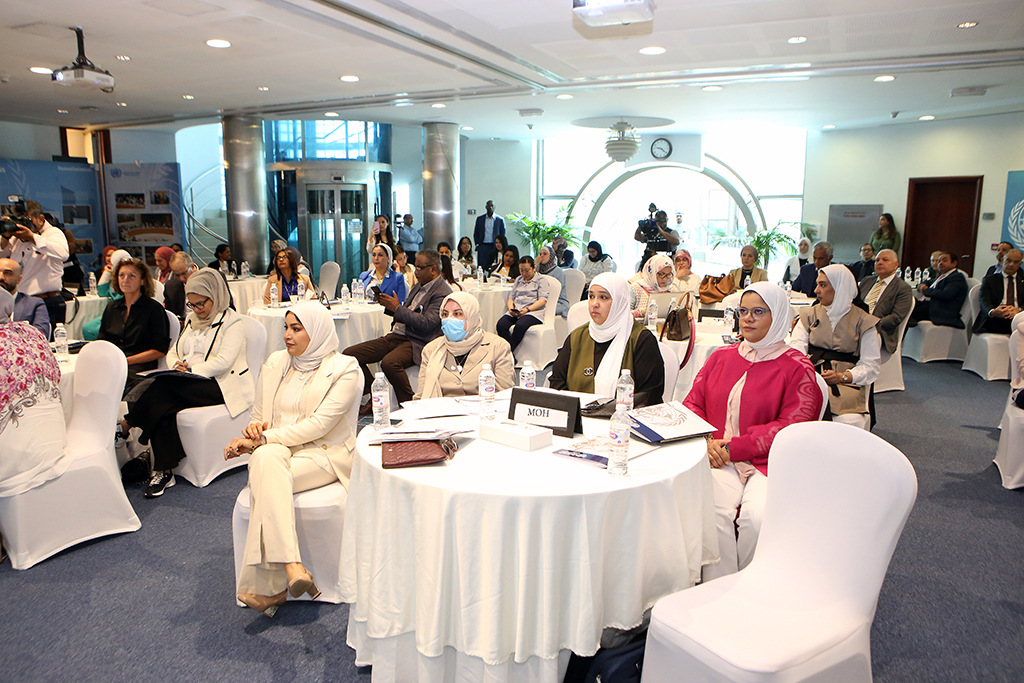By Faten Omar
KUWAIT: The World Health Organization (WHO) in Kuwait, in collaboration with the Public Authority for Food & Nutrition (PAFN) and the Ministry of Health, organized on Wednesday the Baby-Friendly Hospital Initiative (BFHI) orientation seminar at United Nations House. In a press statement, Dr Assad Hafeez, WHO Representative for Kuwait, said: "Breastfeeding is very important and we realized that effort is needed in Kuwait to put in place the structures to improve breastfeeding rates."
 Dr Assad Hafeez
Dr Assad HafeezHafeez noted that the event focused on private hospitals, where more than 70 percent of deliveries take place every year. "All private maternity hospitals were invited to participate and give their inputs. We are hoping that in the near future, we will be able to implement the BFHI program to enhance breastfeeding," he said. "The low rates of exclusive breastfeeding in Kuwait are strong signs that we must cooperate across all sectors to address optimal infant nutrition."
He revealed the main recommendation of the seminar was how to implement the BFHI in a manner acceptable to the institutions and how WHO can assist private hospitals to attain this accreditation and sustain it over the years. "We find evidence in other countries that the more BFHI hospitals, the better the breastfeeding rates and better the health of children," Hafeez said.
"To implement the program, there are certain standards to meet and ten steps to achieve. Usually, hospitals take a few months to achieve those steps, and then an external committee visits the hospitals and assesses through certain applications and forms whether they were able to achieve the standards or not. Once they achieve the standards, the committee holds regular visits and follows up to ensure that they sustain them," he pointed out.
 Dr Mona Al-Sumaie
Dr Mona Al-SumaieMeanwhile, Dr Mona Al-Sumaie, Director of Community Nutrition Promotion at the Public Authority for Food and Nutrition, opened the technical program with an overview of the mandates of the national breastfeeding committee and its key role in advancing public-private partnerships to promote better nutrition for infants and children across Kuwait.
"We are now focusing on getting private hospitals on board the BFHI program. We already have baby-friendly public hospitals, like Adan Hospital, and Taiba Hospital (private)," she said, affirming they are aiming to boost exclusive feeding rates, in which mothers should only give breast milk to their babies from birth to the age of six months.
 Dr Fatma Al-Najjar
Dr Fatma Al-NajjarAssistant Undersecretary of Private Medical Services Dr Fatima Al Najjar reiterated statistics from the national nutrition surveillance report. "Only eight percent of newly born babies are breastfed for six consecutive months in Kuwait. These figures are much lower than the rates in other countries on the regional and global level. Investment in early childhood has shown a substantial impact on health, educational attainment and productivity for a person's lifetime," she said. It is noteworthy to mention that the WHO Kuwait Country Office in partnership with the Public Authority for Food and Nutrition will be partnering on more activities throughout October and November 2022 to address breastfeeding rates in Kuwait.
The orientation program is a stepping stone toward a nation-wide scale-up of the BFHI in Kuwait to promote better rates of exclusive breastfeeding through the empowerment of families and facilities. This joint seminar succeeded in disseminating the latest evidence and guidance on the BFHI's Ten Steps to 11 private hospitals across Kuwait; there was high-level participation from the management, maternity, nursing and pediatric departments of these hospitals.
In 1991, WHO and UNICEF launched the Baby-friendly Hospital Initiative (BFHI), which aims to ensure that mothers and newborns receive timely and appropriate care before and during their stay in a facility providing maternity and newborn services, to enable the establishment of optimal feeding of newborns, which promotes their health and development. Given the proven importance of breastfeeding, the BFHI protects, promotes, and supports breastfeeding, while enabling timely and appropriate care and feeding of newborns who are not breastfed. This is based on the ten steps to successful breastfeeding.











